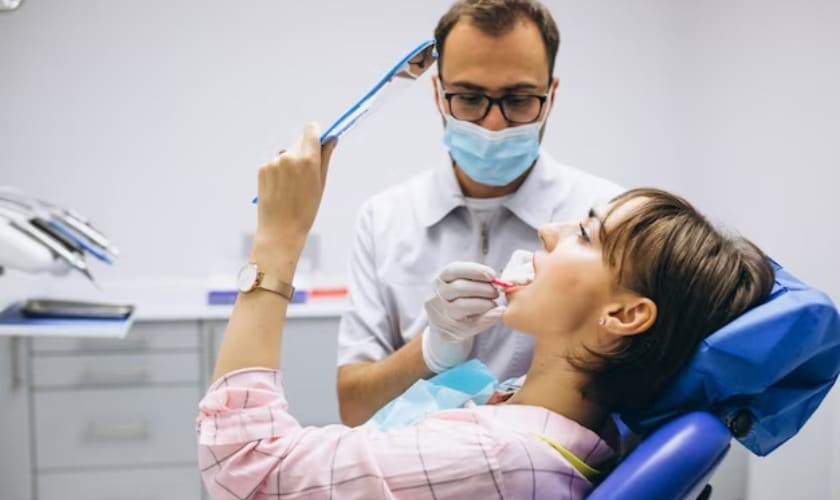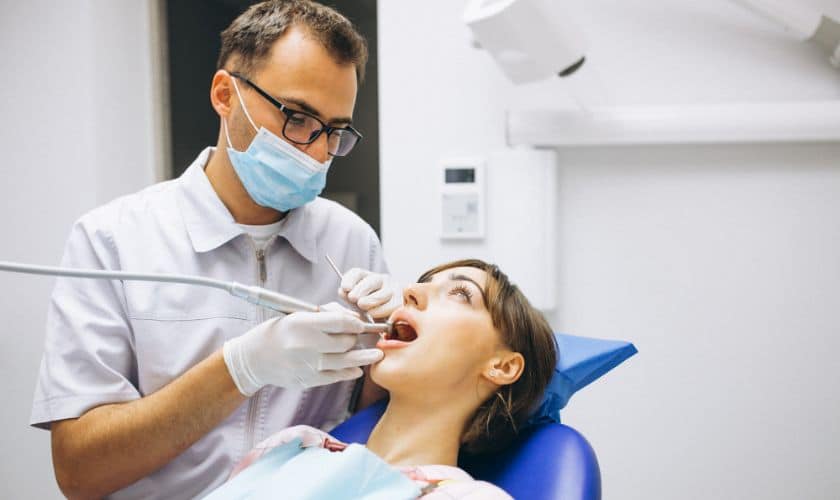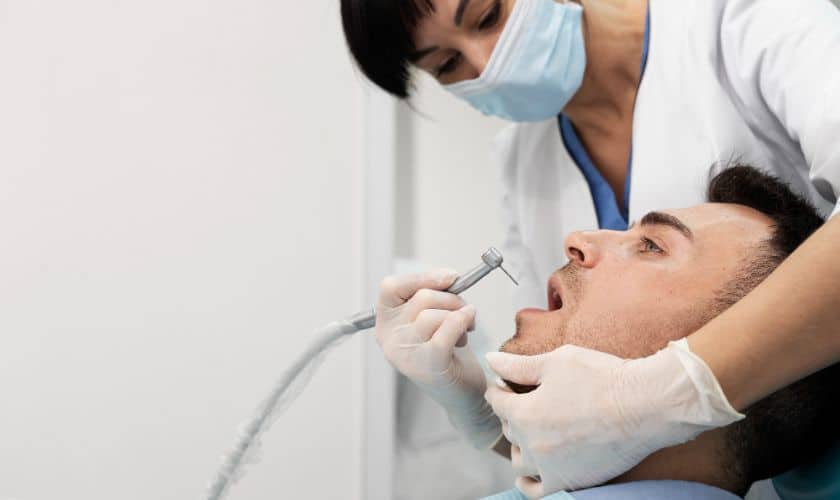
Do you break out in a cold sweat at the thought of visiting the dentist? You are certainly not alone. Dental anxiety is a genuine condition that affects millions of individuals. What if, however, there were a solution to your dental anxiety? Sedation dentistry is a game-changer that can help even the most apprehensive patients feel at ease. A dentist in Midwest City can provide you with a relaxing and comfortable dental experience through various techniques. In this article, we will discuss how sedation dentistry works, its benefits, and why it may be exactly what you need to overcome dental anxiety. Prepare to bid goodbye to dental anxiety permanently!
Let’s have a look at what sedation dentistry is.
What Is Sedation Dentistry?
Sedation dentistry, often known as “sleep dentistry” or “twilight dentistry,” involves administering medicines to patients to help them relax during dental treatments. It is not the same as general anesthesia, in which patients are fully unconscious. Sedation dentistry, on the other hand, allows patients to remain conscious and responsive while still feeling thoroughly relaxed and anxiety-free.
Sedation dentistry’s primary purpose is to make dental visits more comfortable and less stressful for those who have dental anxiety or phobias. This method is also advantageous for those with a low pain tolerance, a strong gag reflex, or difficulty sitting still for long periods during extensive operations.
Types Of Dental Sedation
Several types of sedation are used in dentistry, each catering to different levels of anxiety and procedure requirements. Here are the main types:
Nitrous Oxide (Laughing Gas): Nitrous oxide is a common and safe method of inhaled sedation. It induces exhilaration and relaxation, making patients feel at ease during dental procedures. Patients can drive themselves home after their appointments because it burns off rapidly once the gas supply is cut off.
Oral Sedation: Prior to the dentist session, this procedure entails taking prescription drugs in pill or liquid form. Patients who use sedative drugs like Valium or Halcion report feeling sleepy and less worried. Depending on the patient’s requirements, the level of sedation can be changed.
IV Sedation: Through the use of intravenous (IV) sedation, the effects of the sedative can be precisely controlled. This kind of sedation is frequently employed for more difficult operations or for people who have a great deal of dental anxiety.
General Anesthesia: General anesthesia makes the patient unconscious, albeit rarely used for regular dental treatments. It is only used when the patient needs to remain completely uninformed during the process, such as with significant oral procedures.
How Sedation Dentistry Helps Calm Patients
Sedation dentistry offers a wide range of benefits for both patients and dental professionals:
Reduced Anxiety and Fear:
People often don’t go to the doctor because they are afraid or anxious about going there. Sedation dentistry helps people get over their fears by making them feel calm and relaxed. Patients are less worried about the process, which makes it easier to schedule and keep dental appointments.
Pain Management and Discomfort:
Some dental procedures can hurt or be uncomfortable, especially for people with sensitive teeth or a low pain level. Sedation dentistry helps control and lessen pain, which makes the experience easier to deal with. During the process, the patient might not be as aware of pain.
Improved Cooperation:
During dental treatments, it can be hard for patients who are nervous or afraid to cooperate. They may fidget, move independently, or fight against treatment, making the dentist’s job harder. Sedation makes people feel calmer, which makes it easier for them to stay still and help during the process. This makes it easier for the dentist to give good care.
Time Efficiency:
Dentists can do their jobs better when customers are calm and willing to help. This can be especially helpful for complicated treatments that need to be done quickly. With sedation, dentists may be able to do treatments faster and more correctly, cutting down on the total amount of time spent in the dental chair.
Enhanced Dental Health:
Sedation dentistry encourages regular dental checkups and important treatments, even for people who have feared the dentist for a long time. Sedation helps keep and improve general oral health by making these important visits easier. When oral problems are found and treated early, they don’t worsen and need more extensive and expensive care. Hence, a dentist in Midwest City is always there to help you with any dental needs.
Reduced Gag Reflex:
Some people have a strong gag reflex, which makes it hard for dentists to take X-rays or make molds of their teeth. Sedation can make patients less likely to gag, making these treatments easier and more comfortable.
Suppression of Memory:
When someone is sedated, their memories are often temporarily blocked. Patients may not remember the dental treatment details, which can be good for people who have had bad experiences at the dentist. This effect makes it harder for people to remember bad things about going to the dentist.
Flexibility and personalization:
Sedation dentistry offers different levels of sedation, from mild to deep. This lets dentists tailor their method to each patient’s needs and the difficulty of the procedure. This ensures that the sedation is right for the person and safe for them.
Sedation dentistry is a useful tool that can help calm patients and make going to the dentist easier and more pleasant. There is something that will work for everyone, from the mild relaxation that nitrous gas gives to the deeper sedation that IV sedation gives. If you’ve been avoiding the dentist because you’re afraid or anxious, talk to your dentist in Midwest City about sedation dentistry. It could be the key to keeping your teeth healthy and ensuring you have a beautiful smile for a long time. Don’t let fear get in the way of your dental health. Learn about the benefits of sedation dentistry from a Midwest City dental office, Midwest Smiles – Dentist Midwest City and take the first step toward a stress-free dental visit.




